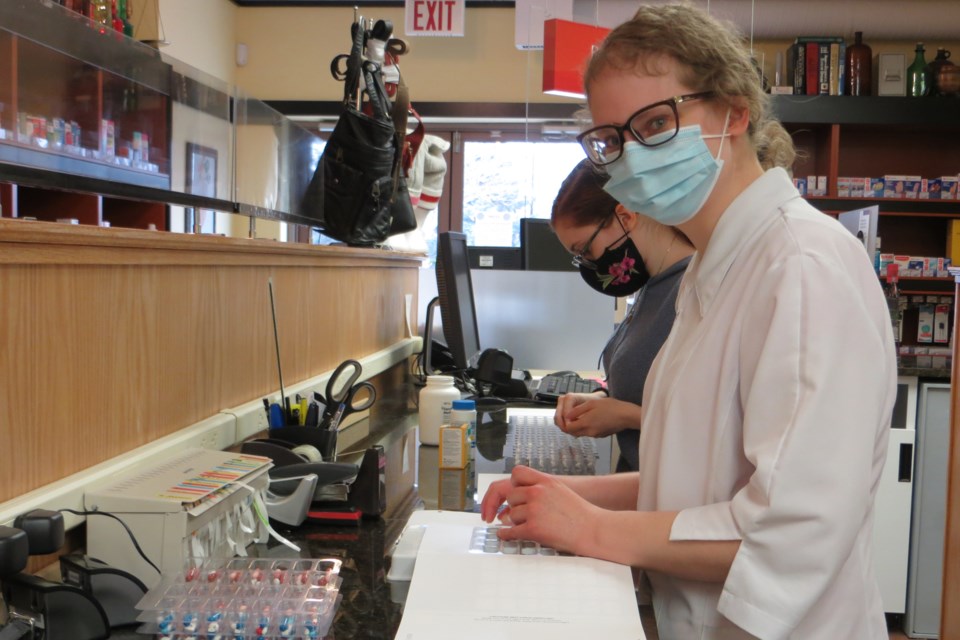It’s been a year of unprecedented challenges for anyone working in health care. While pharmacists may not be in hospitals providing hands-on nursing care, their work in dispensing medication and vaccinating huge numbers of people is critical in keeping patients healthy.
March is Pharmacy Appreciation Month, a time to salute their invaluable service by taking a quick look at how they’ve stepped up to do their part. Jill Bocking, part of the Midtown Apothecary team, is a St. Albert pharmacist who has made important contributions to keeping families well.
Once COVID-19 hit, pharmacies’ steady stock of medical supplies became strained through pressures on the distribution system. Patients were rationed medication and personal protective equipment. Some pharmacies even experienced difficulties locating basic hand sanitizers and pill bottles.
“We had drug shortages at the beginning. People were stocking up on a lot of things. But a lot of raw chemicals came from China, and China’s COVID outbreak affected that (export). There were quite a few things in short supply for a while," Bocking explained.
Pharmacists stepped up to relieve pressures by extending services where possible and increasing home deliveries, allowing patients to remain isolated during the pandemic. However, the extra services increased financial costs.
Formerly from Medicine Hat, Bocking developed an interest in pharmacy work while taking science classes in pharmacology at University of Alberta. Pharmacology is a branch of medicine that is concerned with how drugs work in the body and the mechanisms they act on.
After graduating in 2013, Bocking put all her hard-earned knowledge to use examining prescriptions. She made sure each dose and duration was accurately specified for each patient. Too low a dosage can fail to alleviate a condition. Too high a dose can poison the system.
“Sometimes drugs need to be spaced out so you don’t have an interaction with others. Sometimes people can’t take a type of medication and you have to phone a doctor with alternative suggestions. You have to counsel people on medications, and tell them what side effects to expect and what to do. And then there’s billing with the insurance company.”
The injection course Bocking took while in the pharmacy program served her well administering influenza, pneumonia and shingles vaccines, to name a few.
“Before COVID, we even provided travel consultations, and under the Additional Prescribing Authority we could even prescribe medications.”
When the pharmacy received a go-ahead to administer Moderna for COVID-19, vaccinations were booked every 10 minutes. Staff who normally worked eight to nine hours daily were giving jabs 12 hours a day. And that was before submitting paperwork usually completed at the day’s end.
Through her experience, Bocking realizes many people are unaware of services pharmacists provide.
“People don’t always know what to ask. Knowing your pharmacist or pharmacy staff is important. People I’ve known can sometimes take years to make themselves comfortable enough to ask a question. When we talk to people, we can uncover a lot of potential problems. For example, sore muscles could be the side effect from a medication that is going undetected.”
Trust, she says, is the biggest factor in developing a good relationship with patients.
“We don’t necessarily want to talk about our health issues with a stranger. But having that personal relationship where you are comfortable talking to a pharmacist can make all the difference.”
For Bocking, learning daily about drugs stimulates her mind. But during the pandemic, the inter-personal relationships she creates with people continue to act as a driving force.
“I like how I get to know people well and develop personal relationships. I like that they call and ask questions and I like being involved in day-to-day health and helping make important changes.”




